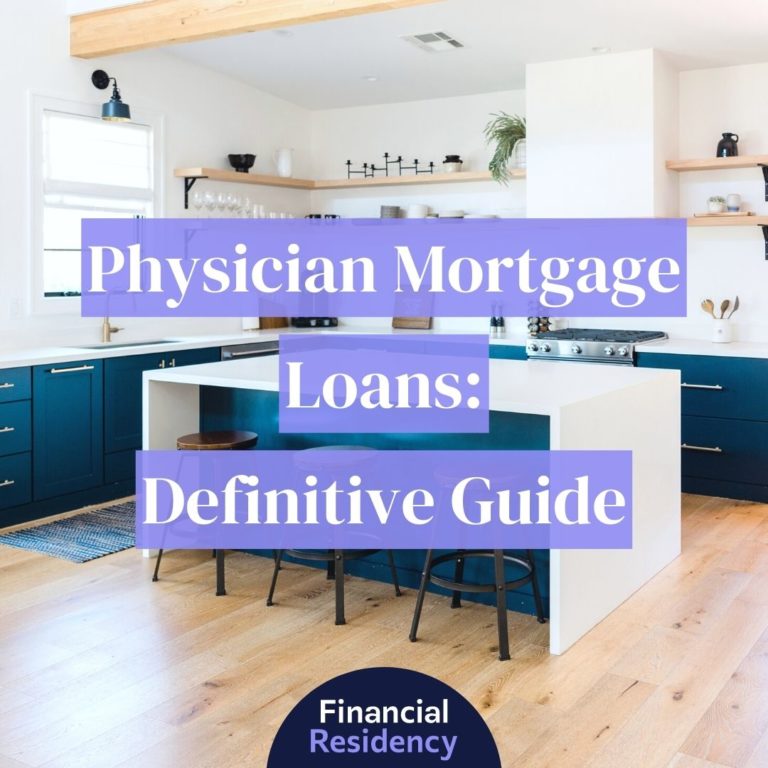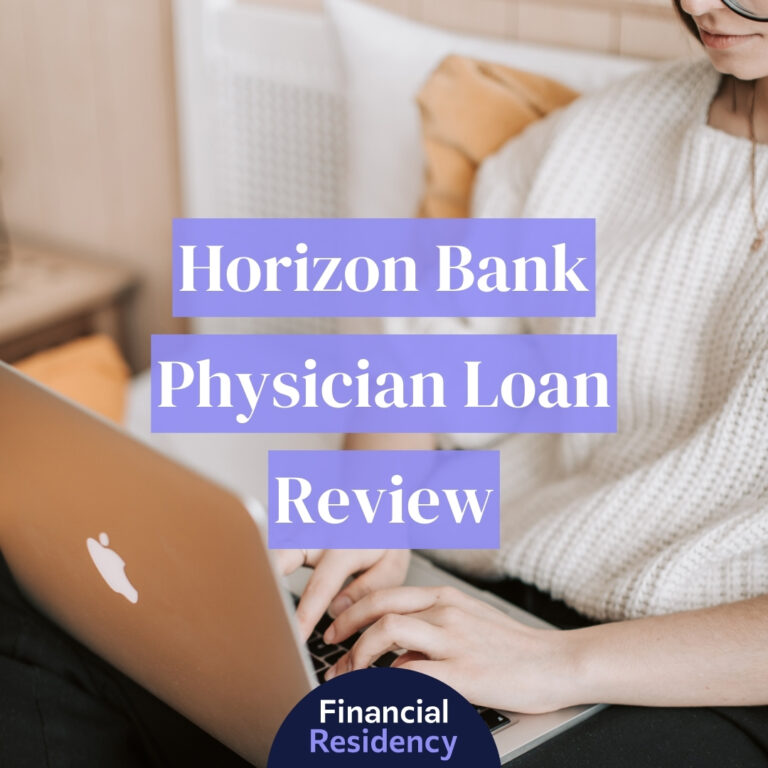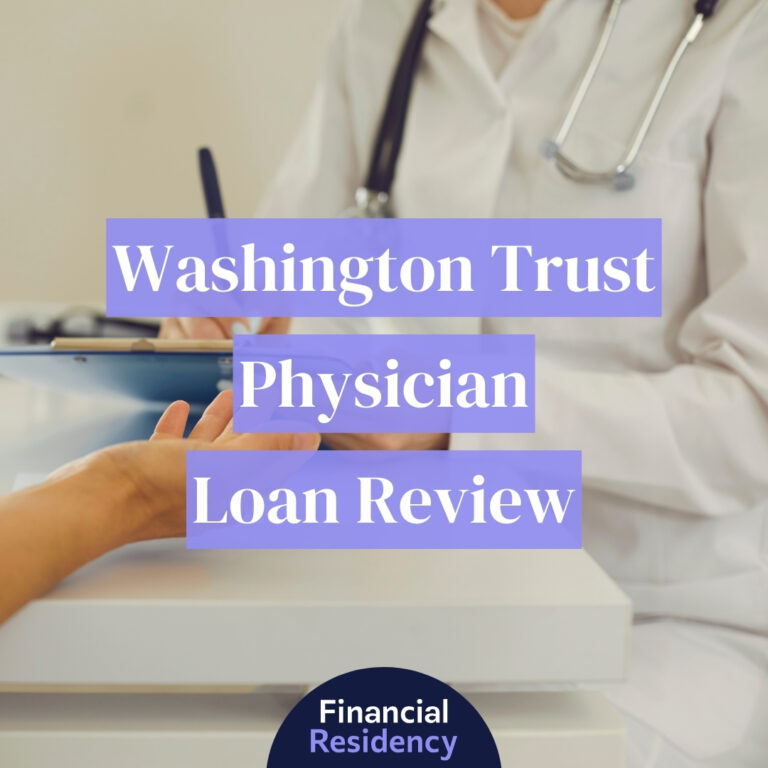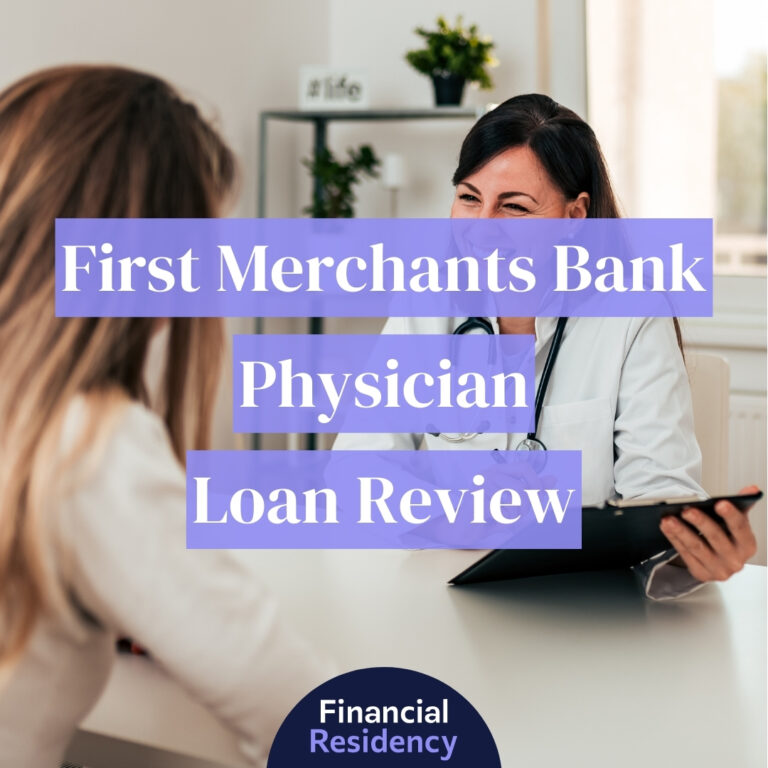Moving or refinancing can be a stressful process, but utilizing a physician mortgage loan in Rhode Island can help make the transition easier.
Physician mortgage lenders are trained to thoughtfully guide medical professionals through every step of the home-buying process, so you can seamlessly join the 5,000 practicing physicians who call The Ocean State their home,
Rhode Island offers its 1 million residents many different lifestyles and close proximity to the Boston Metropolitan Area at a more affordable price tag. Whether you choose to live on the coast, near the bustling capital of Providence, or in the lovely town of Newport, you’re bound to find a beautiful place to plant your roots.
If you’re ready to find the best physician mortgage loans in Rhode Island, then one of these experienced lenders is ready to get started.
8 Best Rhode Island Physician Home Loan Lenders
Here are the top lenders of physician loans in RI:
- Citizens Bank
- Evolve Bank & Trust
- Huntington Bank
- KeyBank
- NEO Home Loans
- TD Bank
- U.S. Bank
- Washington Trust
Discover The Best Lenders in Rhode Island Answer just a few questions about your career, where you're buying, and how much you want to borrow. Our service will then show you the exact programs you're eligible for from vetted physician loan specialists who will guide you through every step of the process – obligation-free!
1. Citizens Bank
- BBB Grade: B+
- JD Power Score: 818
Citizens Bank extends its physician loan program to doctors and dentists with an MD, DO, DDS, or DMD degree, including current residents. Borrowers must be within the first 10 years of their career to qualify, which isn’t a rare stipulation in the physician mortgage space.
Borrowers have several down payment options depending on their maximum loan approval amount and all down payment options exclude PMI.
Loans up to $850,000 require a 5% down payment. Loans up to $1 million require a 10% down payment. The program maxes out at $1.5 million, which requires a 15% down payment.
Student loans deferred for a year or more after closing won’t be factored into debt-to-income (DTI) ratio calculations. This flexibility can make it much easier for borrowers with substantial student loan debt to qualify.
Borrowers may also use their income-driven repayment or reduced payment amount to qualify.
Fixed-rate and adjustable-rate mortgage products are available. Fixed-rate mortgage options can be structured with 10, 15, 20, or 30-year terms. Citizens Bank’s adjustable-mortgage rate options include 3/1, 5/1, 7/1, and 10/1 options.
2. Evolve Bank & Trust
- BBB Grade: B
- JD Power Score: N/A
Evolve Bank & Trust offers one of the more inclusive physician home loan programs on the market. The Medical Professional loan program is open to the following medical designations, including residents and fellows:
- MD
- DO
- DDS
- DMD
- PA (Physician Assistant)
- NP (Nurse Practitioner)
- DVM
- CRNA (Nurse Anesthetist)
- DC (Chiropractor)
- OD (Optometrist)
- DPM
- PharmD/RPH (Pharmacist)
- Clinical Nurse Specialists
All borrowers must be within 10 years of completing residency to qualify. Self-employed medical professionals are also eligible.
Evolve Bank & Trust dedicates an entire team to processing and approving loan applications. Borrowers can apply for fully underwritten pre-approval at no cost. The underwriting team will use flexible DTI guidelines to make exceptions on a case-by-case basis.
The program has minimum cash reserve requirements but they will vary depending on the loan amount. Borrowers may use gift funds and a non-occupant co-borrower if they are unable to qualify on their own.
Borrowers may have access to closing cost discounts as well. The Medical Professional Loan Program offers the following down payment options, all of which exclude PMI:
- 0% down payment on loans up to $1 million
- 5% down payment on loans up to $1.25 million
- 10% down payment on loans up to $1.5 million
- 15% down payment on loans up to $2 million
Loans may be used to purchase a 1-4 unit property, single-family home, or condominium. Construction loans are also available.
Borrowers who have not yet started employment can use a future employment contract to qualify.
3. Huntington Bank
- BBB Grade: A+
- JD Power Score: 821
Huntington Bank’s Physician Mortgage Loan Program is open to physicians with a minimum degree in one of the following areas:
- MD
- DO
- DDS
- DMD
- DVM
Borrowers must demonstrate sufficient cash reserves, but the exact amount will depend on the loan amount they’re approved for. Sufficient income is also a requirement, but borrowers who have not yet started their jobs can use an employment contract set to begin within 90 days.
All down payment amounts waive PMI. The loan program has a maximum loan amount of $2 million.
Qualified borrowers can secure up to $1 million without a down payment. Loans up to $1.25 million require a 5% down payment and loans up to $2 million require a 10% down payment.
Loan approval amounts will be based on the borrowers’ credit profile. Cash-out refinancing options are available, but the total cash amount will be limited to $50,000. All other funds must be used to satisfy debt obligations.
The loan program may be used to purchase a new home or refinance a primary residence the borrower already owns.
Fixed and variable interest rate options are available. Borrowers may also pay off their loan at any time without a prepayment penalty.
4. KeyBank
- BBB Grade: A+
- JD Power Score: 794
KeyBank’s Medical Professional Mortgage Program is open to practicing interns, residents, fellows, clinical professors, researchers, doctors, and dentists with at least one of the following degrees:
- MD
- DO
- DDS
- DMD
- DPM
KeyBank offers one of the most generous home loan programs on this list with a maximum loan amount of $3.5 million.
The program will provide up to 95% financing to qualified borrowers. The required down payment will be based on the borrower’s credit profile and income.
Like other physician loan programs, PMI is not required, which can significantly reduce mortgage payments.
Loans may be used to purchase a new home or refinance an existing home. Rate/term and cash-out refinancing options are available.
Eligible property types include single-family homes, condominiums, and properties in a planned unit development. Single-family homes may be attached or detached.
Fixed and variable interest rate options are available.
5. NEO Home Loans
- BBB Grade: A+
- JD Power Score: N/A
NEO Home Loans extends its physician loan program to residents, fellows, practicing physicians, and self-employed medical professionals at any stage in their careers. The following medical designations are included in the program:
- MD
- DMD
- DDS
- DO
- RPH/PharmD
- DC
- DVM
- OD
- DPM
- DCH (Diploma of Child Health)
Borrowers on a J-1 visa can also qualify.
NEO Home Loans will provide 100% financing on loans up to $1 million or 95% financing on loans up to $2 million. PMI isn’t required.
Borrowers may apply gift funds to their down payments, which can be particularly helpful for borrowers with limited savings.
Loans may be used to purchase or refinance a 1-2 unit property.
The underwriting team will be flexible with student loan debt when calculating DTI ratios. Borrowers can also close on their homes before starting their new jobs as long as they can show proof of an acceptable employment contract.
NEO Home Loans provides a personalized physician mortgage loan consultation at no cost for interested borrowers.
6. TD Bank
- BBB Grade: A+
- JD Power Score: 837
TD Bank’s Medical Professional Mortgage Program is available to residents, fellows, doctors, and dentists within the first 10 years of their careers. Borrowers must hold one of the following degrees and an active license:
- MD
- DO
- DPM
- DDS
- DMD
- OMS
Loans may be used to purchase or refinance a primary residence. The eligible property types are single-family residences, condominiums, and properties in planned unit developments. In select markets, properties in co-op buildings are also eligible.
Borrowers have a few down payment options, all of which exclude PMI requirements. We’ve outlined the down payment options below:
- 0% down payment on loans up to $1 million
- 5% down payment on loans up to $1.5 million
- 01% down payment on loans up to $2 million
TD Bank doesn’t advertise how it calculates the DTI ratio, but it will be flexible for borrowers with student loan debt. Like other physician mortgage programs, borrowers can use a verified employment contract that begins within 90 days as proof of income.
7. U.S. Bank
- BBB Grade: A-
- JD Power Score: 820
U.S. Bank offers its physician loan program to residents, fellows, MDs, and DOs with a 710 minimum credit score. The program has a maximum loan amount of $2.5 million and a variety of low-down-payment options.
Borrowers have access to down payments as low as 5% on loans up to $1 million. Loans between $1 million and $1.5 million require a 10% down payment. Loans between $1.5 million and $2 million require a 15% down payment.
All down payment options waive PMI, but borrowers will need to demonstrate sufficient cash reserves to cover closing costs and other expenses. The cash reserve requirements can range from 3–12 months depending on the loan amount.
U.S. Bank doesn’t exclude all student loan debt when calculating DTI. Instead, it will be 2% of the total loan balance for borrowers in deferment.
Borrowers who open a qualifying U.S. Bank account can qualify for lender credits. Loans must be used to purchase or refinance a primary residence.
8. Washington Trust
- BBB Grade: A+
- JD Power Score: N/A
Washington Trust offers special financing options to qualified doctors and dentists with an MD, DO, DDS, DMD, DDS, DVM, or DPM degree. Non-permanent residents are also eligible.
The physician mortgage loan program will provide 100% financing on loans up to $750,000, but there are other low down payment options for larger loan amounts. Borrowers can secure home loans up to $1.25 million with a 5% down payment or up to $2 million with a 10% down payment.
PMI isn’t required. Gift funds from family members may be used to offset the down payment and closing costs.
Medical residents are limited to a total loan amount of $417,000.
Loans may be used to purchase or refinance a 1-2 unit primary residence, condominium, townhouse, or property in a planned unit development. Investment properties, manufactured homes, and rentals are not eligible for financing.
Refinancing options are limited to 95% of the value of the house.
Student loans deferred for 12 months or more won’t be factored into the credit approval process.
Borrowers who have not yet started their new jobs can use a signed employment contract dated within 60 days of the closing date.
How Physician Mortgage Loans Work in Rhode Island
Physician mortgage loans in Rhode Island aren’t much different from physician loans in other areas of the country. Mortgages are regulated by the Banking Division of the Department of Business Regulations.
In Rhode Island, borrowers are limited to $726,200 when they finance through a conforming conventional loan or $661,250 when they finance an FHA loan. All loans that exceed this amount are considered jumbo loans.
The median purchase price for a Rhode Island home is around $400,000, but as inventory decreases and demand increases, the housing market remains competitive.
Physician mortgage loan programs offer generous loan amounts with low down payment options.
Physician Mortgages in RI are More Lenient
Physician mortgage loans can allow Rhode Island medical professionals to make competitive offers in even a challenging market. It can also allow them to purchase their dream home before they reach their full earning potential.
In addition to providing more generous loan amounts, physician mortgage loans are more lenient than conventional loans in the following ways:
- Borrowers can use an employment contract dated within 60–90 days of closing as proof of earning potential.
- Borrowers with high student loan debt may have it excluded entirely when underwriters calculate DTI ratios.
- Borrowers will not be required to pay PMI, regardless of their down payment amount.
- Borrowers can qualify for low-down payment options, so even cash-poor medical professionals can pursue homeownership.
A Few Stipulations to Note
While physician mortgage loan programs will make exceptions to many of the hard rules imposed by conventional mortgage loans, the additional risk lenders take on doesn’t come without stipulation.
For example, physician mortgage loans are generally reserved for the purchase or refinance of a primary residence only. Investment properties and rental homes are often ineligible.
Physician mortgages also require an excellent credit profile––at least a 700 minimum credit score––to qualify.
Borrowers must also hold a qualifying medical degree included in the program they choose. Medical doctors and doctors of osteopathic medicine are the most likely to be included, but some programs go further by including dentists, veterinarians, nurse practitioners, and other high-income earning professionals.
Pros and Cons
Weighing the pros and cons of physician loan programs is an important part of making an informed choice that fits your needs.
We’ve prepared a few notable pros and cons to help you find the best physician mortgage loans in Rhode Island for your financial situation.
Pros
- No PMI: Doctor mortgage loans don’t require private mortgage insurance, which can save borrowers hundreds on their monthly payments.
- Can be used to refinance: Physician mortgage loan programs can be used to rate/term or cash-out refinance a primary residence qualified medical professionals already own.
- Open to medical residents: Physician loan programs are often inclusive of interns, residents, and fellows with an educational license.
- Low down payment options: Borrowers can qualify for physician mortgage loans with 85–100% financing options.
- Higher loan limits: Physician mortgage loans aren’t conforming loans, so they can offer more generous loan amounts––often millions of dollars.
- Flexible debt-to-income ratio guidelines: Physician loan underwriters make case-by-case considerations for borrowers with a lot of student loan debt, which can make it much easier for early-career professionals to qualify.
- Buy before you start your new job: Incoming medical residents and other doctors may have to relocate to continue their training. Physician loan programs will accept employment contracts set to begin within 60–90 days of closing as proof of earning potential.
- Fixed and adjustable-rate mortgage products: Physician mortgage loan programs can be structured with variable or fixed interest rates.
Cons
- Age limits: Some doctor mortgage loans are limited to medical professionals within the first 10 years of their careers.
- Property restrictions: Many physician mortgage programs are limited to owner-occupied primary residences. You’ll also want to read the fine print because every lender will have specific property types it will provide financing for.
- Higher credit score requirements: Physician mortgage loans have a higher credit score requirement than government-backed mortgages and conventional loans. A 700 minimum credit score is recommended.
- Large mortgage payments: Because doctor mortgages aren’t subject to conventional loan limits, it can be easy to borrow outside your means if you’re not careful.
- No standard eligibility requirements: Every mortgage lender will have a list of medical designations it will accept into its physician loan program. Not all medical professionals can qualify for all programs.
- Closing costs and cash reserves: While physician loan programs will provide up to 100% financing, borrowers will need to have sufficient funds to cover closing costs and the minimum cash reserves the lender requires.
Frequently Asked Questions
How much does a physician mortgage in Rhode Island cost?
The cost of a physician mortgage in Rhode Island depends on the current market conditions, loan amount, and the credit profile of the borrower.
Physician mortgage loans sometimes have a higher interest rate than conventional loans, but you can reduce this cost by prepaying the loan early or refinancing after you’ve built equity.
How much can a doctor borrow with a mortgage loan?
The amount a doctor can borrow with a mortgage loan depends on the loan program they select, their credit score, income, and other risk factors perceived by the underwriting department.
Conforming conventional loans are held to the loan limits set by the Federal Housing Financing Agency, but physician mortgages are not.
Borrowers can secure loans up to $750,000 on the low end, but some programs will provide up to $3.5 million to qualified borrowers.
What is the difference between a VA loan and a physician loan?
The main difference between a VA loan and a physician loan is that a VA loan is a government-sponsored mortgage program exclusively available to individuals who have served in the military or are currently married to an eligible veteran while physician loans are specialty loan products offered by private lenders.
How much will I need to pay for a doctor mortgage loan?
The amount you will need to pay for a doctor mortgage loan depends on the down payment, loan amount, and closing costs required by the lender. Some physician loans offer 100% financing options which can reduce many of the upfront costs of purchasing a home.
Who is a Physician Loan in Rhode Island Best For?
Are you having a hard time deciding if a physician loan is the right choice for you? Sometimes it takes identifying with the situations other individuals find themselves in to take action.
We’ve prepared a few example scenarios of people who can benefit a lot from the flexible terms of physician mortgage loans in Rhode Island.
1. Medical resident with significant student loan debt
Higher education, particularly medical school, is an expensive endeavor that not everyone can afford to pay out of pocket. As such, many medical residents enter the workforce with significant student loan debt––often more than $200,000, excluding undergraduate debt.
Conventional mortgage loans require a DTI ratio of 43% or less to qualify. Medical residents are far from their full earning potential, which means their DTI ratio can be heavily skewed due to student loan debt.
Physician mortgage lenders understand student loan debt is a common barrier for medical professionals on the path to homeownership and make certain accommodations, such as excluding deferred student loan debt, using the monthly payment amount for borrowers on an income-driven repayment plan, or using a fraction of the total loan balance.
2. Dentist shopping interest rates
Having a specialized medical degree and high earning potential gives dentists unique access to loan programs that the general public does not have.
One of the best ways to ensure you get the most competitive interest rate on the market is to shop around and get preapproved for both conventional and physician mortgage programs.
Comparing loan programs can allow you to make an informed decision about the financial investment and terms each requires.
While physician loan programs often have a higher rate of interest than conventional loan programs, borrowers with excellent credit are more likely to qualify for the lowest interest rate available.
3. Medical professionals playing the stock market
There’s a reason people say “It takes money to make money.” Earning money in the stock market requires consistent investment. Saving for a down payment or making larger monthly payments due to PMI fees can take away from the amount medical professionals can invest on a consistent basis.
Physician mortgage loans allow medical professionals who want to continue to grow their investment in the stock market without sacrificing their dreams of homeownership.
4. Veterinarian looking to refinance
Physician mortgage loans can be a great option for existing homeowners looking to leverage their home equity for better interest rates, lower monthly payments, or cash to accomplish other financial goals, such as paying off debt.
Not all physician mortgage lenders will provide rate/term and cash-out refinancing, so it’s important to discuss your options with a qualified loan officer.
Refinancing is generally an option for borrowers who have built at least 20% equity in their homes, but borrowers with a strong credit rating may be eligible as well.
Moving to a Different State?
Click on the state you are moving to and get the best physician mortgage loan lenders in that state:
Learn more about physician home loans.




